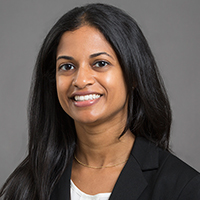Career Development | Financial Planning: Knowing Your Numbers

We all “know the numbers,” so to speak; but do we know our numbers? I am not talking about our cardiovascular disease risk factors. While cardiologists are familiar with the saying, “health is wealth,” and have dedicated their lives to preventing and treating cardiovascular disease, are they open to thinking about wealth and financial planning?
Finances are often considered a taboo topic, and some cardiologists are embarrassed to discuss finances, after entering the profession to be of service to others. During my 11 years of medical school, residency and fellowship, the most I thought about money was the yearly meeting with the financial counselor to go over student loans. At graduation, I remember getting the sum total of my loans and wondering, “How will I ever pay this off?”
Now that I am in my second year as an attending at Rush University Medical Center, I am thankful we had Capital Strategies Investment Group LLC speak to the Rush Heart Center for Women as part of the annual Illinois WIC Section event about an important topic: “How do I take care of my money?” The group highlighted that financial empowerment is “making choices you want to make when you want to make them.”
Unfortunately, women can have a disadvantage to becoming financially empowered. Women often earn less than men and lose work hours to childbearing and family needs. For female physicians, this means lifetime income may not be on par with that of male colleagues. Therefore, women need to ask: How do I want to spend my money and time? What do I want for myself? The answers will require an inventory of what you value and what concessions you might be willing to make. The key is being in a position where you can become financially empowered to make the choices you want.
Although not complete, the following list is basic points from the session that I found most meaningful to achieving financial empowerment:
- Get rid of credit card debt! If you use your credit card for everyday expenses to rack up reward points, pay off the balance every month.
- Know how you are spending your money and create a budget on Excel or an app of your choice. Look at your bank and credit card statements at least monthly, if not weekly. It is important to know where your money is going and to flag potentially fraudulent activity on your accounts.
- Have an emergency fund of at least six months. This fund is useful for crises, but it also provides the ability to take time off for personal and family needs or to switch jobs.
- Maximize contributions to your employer retirement plan. Take advantage of the employee match and know how your money is invested. Find out if there is a pension plan. It is also important to consider a Roth IRA, which is funded with post-tax income. It is crucial to start retirement contributions as early as possible. Allocate 10 to 15 percent of your monthly income toward retirement savings. As life expectancy has increased, the amount of money needed during retirement also has increased.
These examples are only the building blocks of the road to financial empowerment. If you have a child, consider college savings with 529 plans. Health savings accounts with high-deductible insurance plans also provide another option to save money. Other topics to consider include estate planning, power of attorney, medical decision-making and beneficiaries. If you choose to hire a financial advisor, ask upfront about advisory or investment fees. Last but not least, determine what kind of insurance you need and how much it will cost.
According to Capital Strategies, nine out of 10 women will be solely responsible for their finances at some point in their lives. Get started today on the path to financial empowerment and educate yourself on where your money goes, your future financial needs and your values.
“It takes as much energy to wish as it does to plan.” – Eleanor Roosevelt

This article was authored by Sarah Alexander, MD, FACC, early career cardiologist at Rush University Medical Center in Chicago, IL.